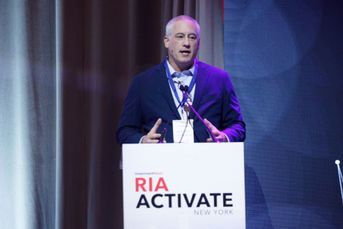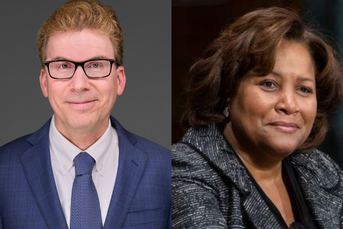Real estate takes top spot in estate planning survey

Advisor explains how to guard against pitfalls and family tensions when clients pass on their family home.
Take note, financial advisors. Home is not only where the heart is, it’s also where the estate planning is.
According to Estateably’s “Estate of the Industry Report,” real estate was the most common asset on the Estateably platform last year, comprising 72.1% of the total value of estate plan assets. Real estate took the top spot for the third consecutive year, according to the report, with the value of real estate on Estaetably climbing from 63% in 2021, totaling $2.8 billion, to over $3.2 billion in 2023.
Estatably, which supervises $9.2 billion in assets, attributes the increase to rising real estate prices, the jump in individuals purchasing second homes and an increase in the home ownership rate in the U.S., which reached the highest figure since 2011.
The report cites a Redfin study which said a vast majority of these homes are owned by baby boomers, who own homes valued at a combined $18 trillion, compared to approximately $5 trillion for millennials as of the first quarter of 2023.
“Real estate is the highest value asset owned by most individuals, and the growth we’re seeing in volume and value reflects the important role real estate plays in creating generational wealth, Ari Brojde, CEO of Estateably, said in a statement. “Real estate owners and investors put a premium on trust and estate planning to ensure that their legacies are protected and they prevent family disputes, tax issues, and probate cases.”
Brian Hartmann, partner at Granite Bridge Wealth Management, part of Osaic, says passing along a family home to the next generation is a common goal for many Americans. The general assumption is that your beneficiaries actually want your real estate. That said, sometimes they do not, Hartmann said.
“We encourage our clients to discuss who and how parents have chosen to receive their real estate properties with their beneficiaries,” he said. “This will create a forum where they may learn that not everyone is interested in receiving the property.”
Hartmann said it’s not uncommon for inheritances of real estate go sour for a number of reasons, such as beneficiaries not having the financial resources to maintain another property. He adds that families planning to leave a single property to multiple beneficiaries need to take extra precautions while considering how to leave their real estate to their loved ones.
“A single property owned by multiple owners can often cause tensions between the new beneficial owners, who may not all see eye to eye on how to utilize the property or when to sell the property,” he said. “Simple planning, including straightforward communication ahead of time, can be the make it or break it when it comes to leaving real estate to the next generation.”
Thomas Kopelman, head of community at Wealth.com, says there are a ton of fights between family members when real estate gets passed down, and it’s usually because they didn’t talk about it ahead of time. When multiple children inherit a property, often some want to sell and others want to keep it. This becomes a huge headache as the ones who want to keep it would need to buy the others out. But if they can’t, this becomes a problem.
“My biggest piece of advice here is to talk about this while the parents are still alive and all come up with a plan on how you want to handle it. Many families allow this to ruin relationships and this is the last thing you want,” said Kopelman.
Brojde added that Estateably has seen an uptick in legal and financial professionals expanding their services to handle the increase in boomer real estate-related planning.
When it comes to wealth in America, baby boomers are clearly the generation in control. A recent report from the Bank of America said that the “great wealth transfer” from baby boomers to their heirs is projected to total $129 billion, up from a previous estimate of $72 trillion.
The Estateably study showed cash to be the second largest asset in its estate plans after real estate. While the percentage of cash being transferred to beneficiaries fell slightly in 2023, to 16.3% from 17.9% the previous year, Estateably said cash was included in more plans than any other asset, with the total value of cash in estate plans reaching $660 million.
Digital and other assets came in third at 4% in the Estateably report, up a percentage point from the prior year.
Value poised to bounce back in 2024, says Voya strategist
Learn more about reprints and licensing for this article.








